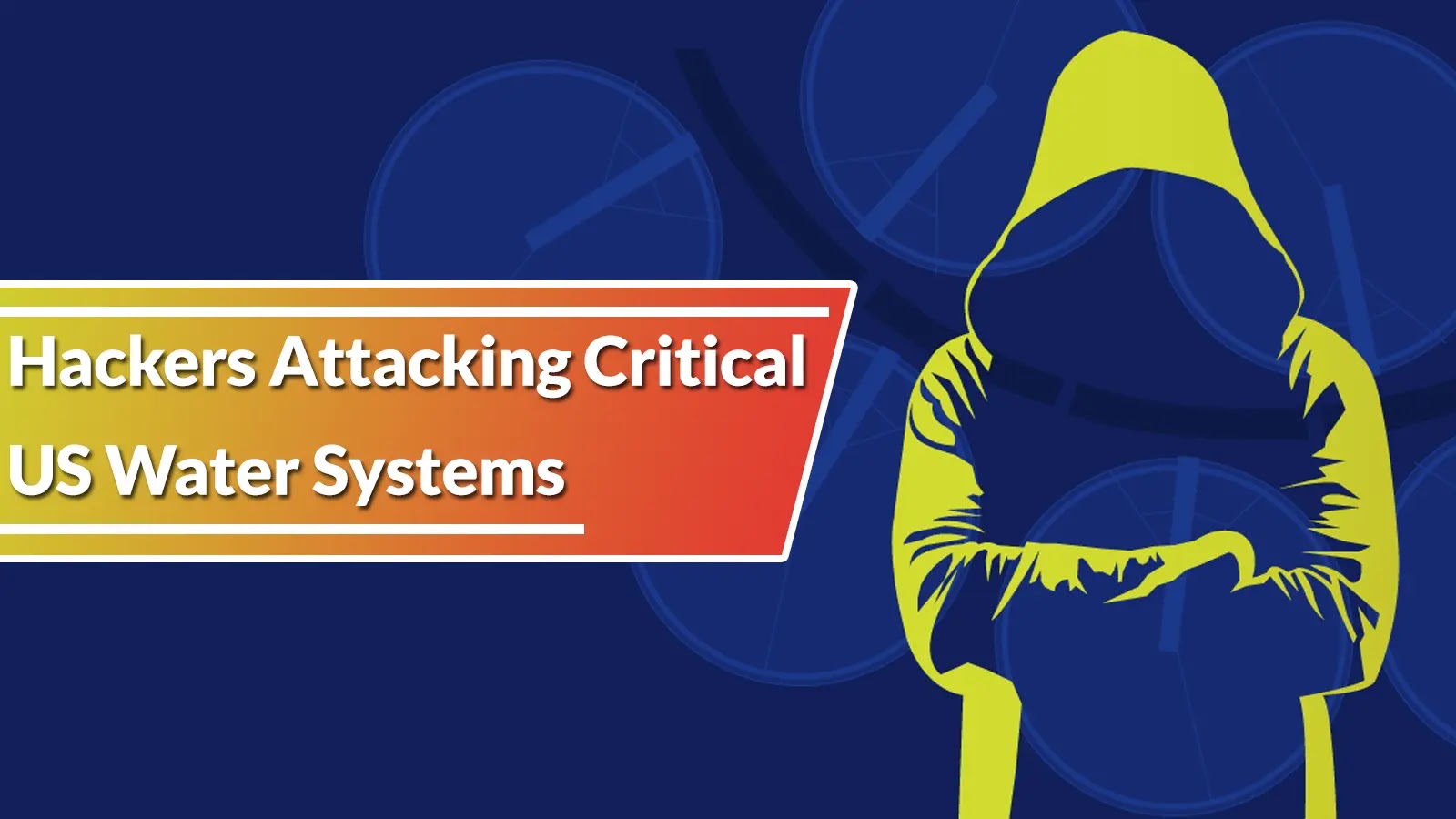Hackers Attacking Critical US Water Systems, White House Warns

Hackers target necessary water systems for diverse functions in this form of style because it have to compromise the systems to alter its quality, interrupt provide, or even potentially save public health at threat.
All this stuff expose the weak point of great infrastructure to cyber-attacks.
No longer too lengthy within the past, the White Apartment office warned that hackers are actively attacking serious US water systems.
U.S. water systems face harmful cyber-attacks that threaten to interrupt dapper water affords and assemble bigger costs.
The stated paragraph highlights these threats and requires a united stand in opposition to making sure the protection of the water design from emerging dangers of cyber attack.
Free Webinar : Mitigating Vulnerability & 0-day Threats
Alert Fatigue that helps no one as security teams enjoy to triage 100s of vulnerabilities. :
- The declare of vulnerability fatigue at the moment time
- Distinction between CVSS-particular vulnerability vs threat-primarily based vulnerability
- Evaluating vulnerabilities in line with the industry impact/threat
- Automation to lower alert fatigue and enhance security posture severely
AcuRisQ, that permits you to quantify threat accurately:
Most up-to-date And Ongoing Threats
There are two most trendy and ongoing threats that now we enjoy talked about below:-
- Iranian IRGC actors conducted cyberattacks on U.S. serious infrastructure, in conjunction with water systems. They exploited default passwords in operational know-how at facilities.
- Chinese deliver-subsidized Volt Hurricane neighborhood compromised U.S. serious infrastructure IT systems, in conjunction with water facilities. Their activities counsel pre-positioning to disrupt operations amid tensions/conflicts.
Water systems lack sources for sturdy cybersecurity, making them ravishing targets.
EPA leads federal efforts to make stronger water sector resilience thru partnerships with deliver/native governments.
Researchers urged users to succor in addressing in style cyber dangers to ingesting water utilities.
Security analysts want your succor making sure water utilities assess cybersecurity vulnerabilities, implement threat reduce charge controls, and train incident response plans.
General precautions, corresponding to altering default passwords and patching, can prevent disruptive attacks. For tricks on making improvements to water design cyber defenses, consult with CISA.
Federal agencies take care of EPA and CISA, along with sector associations, provide cybersecurity steering, tools, practicing, and technical help for water utilities.
Articulate leadership connecting utilities to these sources is mandatory for assessing and mitigating cyber dangers.
Articulate fatherland security advisors can facilitate salvage right of entry to to federal cyber threat details.
The White Apartment officers will invite your deliver’s connected cupboard secretaries to a gathering highlighting recent efforts and gaps in securing water infrastructure from cyber threats.
This convening will stress the urgent want for gallop. EPA will fabricate a Water Sector Cybersecurity Task Force with the Water Sector and Govt Coordinating Councils.
Building on the deliver secretary’s input, it would name high water design cyber vulnerabilities, challenges to adopting easiest practices, and recommend shut to-term actions and lengthy-term strategies to lower nationwide cyber dangers.
The White Apartment and EPA hope these joint efforts safeguard water systems from cyberattacks, scuffling with the want for further federal gallop.
Nonetheless, besides this, contact EPA’s Janet McCabe and NSC’s Anne Neuberger to engage further.
No longer sleep up to now on Cybersecurity details, Whitepapers, and Infographics. Put together us on LinkedIn & Twitter.
Source credit : cybersecuritynews.com

